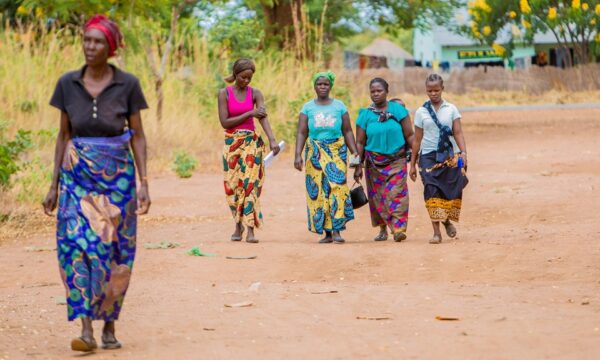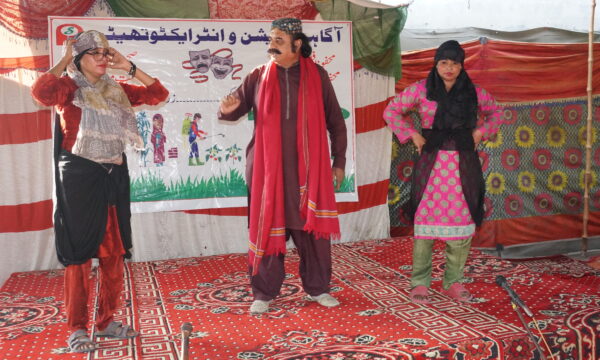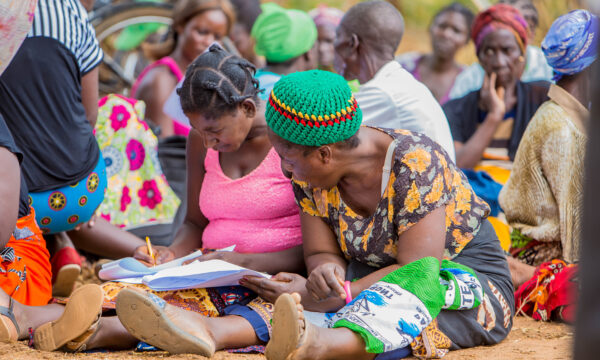Women farmers make up around 43% of the agricultural labour force and produce over half of all food grown worldwide. Yet, when you picture a farmer, are they a woman?
This year’s International Women’s Day theme is ‘embrace equity’ and its aim is to get the world talking about why equal opportunities aren’t enough. People start from different places, so true inclusion and belonging require equitable action.
Last year, we spoke to a panel of experts on the role biases and misconceptions play in preventing women farmers’ access to agricultural advisory services in different regions and cultural contexts around the world.
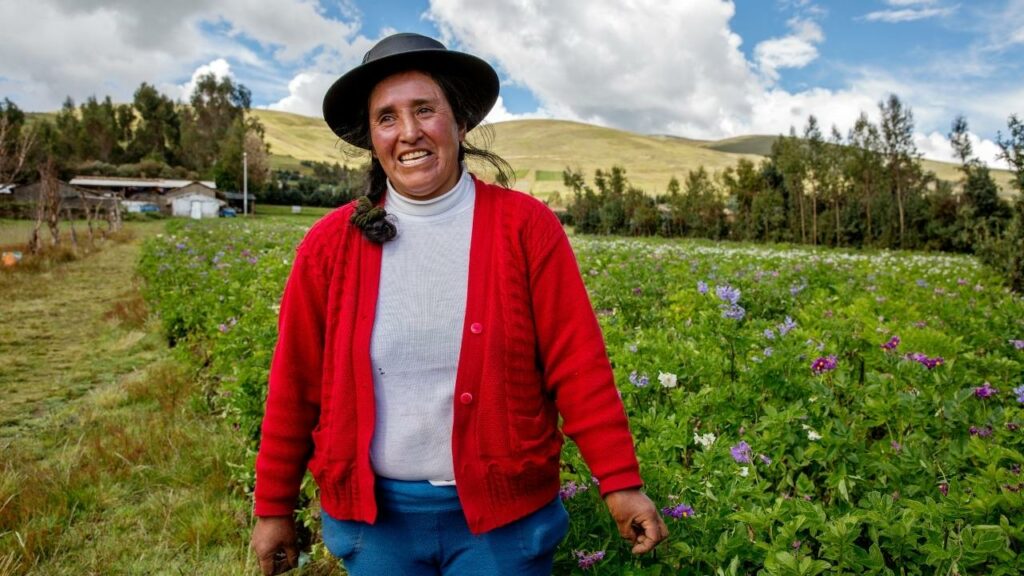
Contribution undervalued
Though vital to rural economies, women find it harder to access agricultural information. Kritika Khanna, Business Development and Communications Officer at CABI, India explained, ‘Despite the many roles and responsibilities in the field, women have minimal input when it comes to decision-making and often their substantial contribution is undervalued’.
Not only does this make it harder for women to access credit, land ownership and agricultural inputs, but it can influence extension advisory service provision, leading to the exclusion of women.
Bethel Terefe, CABI’s Gender Coordinator clarified, ‘Women are not usually considered as farmers in their own right and service providers tend to see them as farmers’ wives, and this is reflected in the way agriculture advisory service organizations operate.’
Land ownership for women farmers
One reason for this is land ownership. Landowners often have the decision-making powers and in mixed households, this is usually the man.
‘I had an interesting discussion during a workshop in Burundi,’ Bethel Terefe explained, ‘when we were training extension plant doctors, they are mainly extension agents and one of the participants said, “You know, why should a woman make decisions on production? Because the land belongs to the man, so he’s the one who should make the decisions.”’
Women farmers and decision making
It’s a similar situation in Bolivia, as Agricultural Scientist Gabriela Rivadeneira explains, ‘here in Latin America, agriculture is a family business. The person that makes decisions is the man, but the woman supports the family, with help with food and taking care of the family.’
So how do we address the biases in agricultural service provision and ensure female farmers have better access to advice? One answer is to look at who we class as a farmer.
How do you define a farmer?
‘Service providers understand the word primaries,’ explained Bethel, ‘so, if we consider a farmer is the head of the household or landowner or someone who has a land title, then we won’t be able to target women because most women don’t fall under this category. So, I think we need to change the way we define a farmer’.
Another tactic is to look at who is providing the agricultural advice. Kainat Panhwer, a Women Entrepreneur Facilitator in Pakistan, explains that even though progress has been made, societal and cultural barriers still prevent women from gaining equal access to advisory services. ‘In Pakistan, we have engaged local female activists to engage female farmworkers. Women have full access to participate in advisory services and finance. But there is a problem if we engage male staff in advisory services or the training of women because there’s a barrier in our society – females should not be in contact with outsiders.’
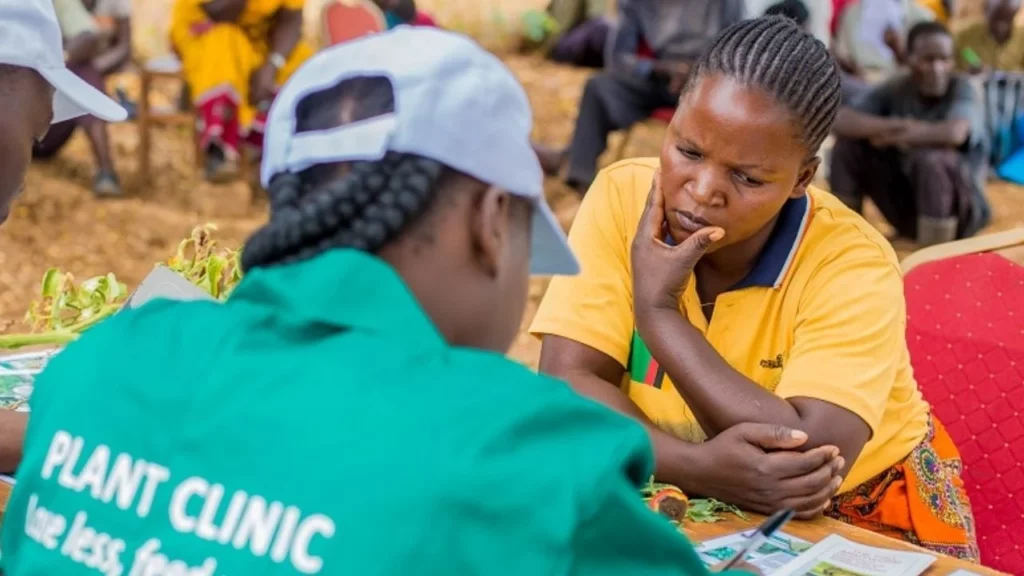
Addressing barriers
Since its launch in 2011, CABI’s Plantwise programme has adopted several strategies to address cultural and societal barriers to women accessing agricultural advisory services, including providing opportunities for in-country partners to train and employ female Plant Doctors.
Bethel explains, ‘We have got to have more women extension agents, extension staff. Because women farmers, in many places, feel more comfortable interacting with women extension agents. We need to create an environment for women extension agents to join and also not quit their jobs, so that would be able to retain them an extension staff as much as possible.’
Breaking the bias for women farmers
Empowering women in agriculture – farmers, extension workers, researchers – can make a fundamental contribution to sustainable development. Although much progress has been made with regard to women’s access to agricultural advisory services, there is still a long way to go before we break the bias. CABI believes its commitment to gender-responsive programming will lead to more inclusive agriculture, supporting the United Nations’ sustainable development goals, and improving the livelihoods of all farmers globally.
Listen to the podcast
Further reading
Find out more about CABI’s new global PlantwisePlus Programme
CABI gratefully acknowledges the financial support of the Directorate General for International Cooperation (DGIS, Netherlands), the European Commission Directorate General for International Partnerships (INTPA, EU), the UK Foreign, Commonwealth & Development Office (FCDO), the Swiss Agency for Development and Cooperation (SDC), for the PlantwisePlus programme.
Related News & Blogs
How plant clinics are strengthening crop health services in Bangladesh
When the first-ever plant clinic in Bangladesh opened in Dhaka in 2013, it initially faced a lack of interest due to its novelty and limited awareness among farmers. However, it went on to expand, providing advice to over 17,000 farmers and led to the…
2 July 2025


